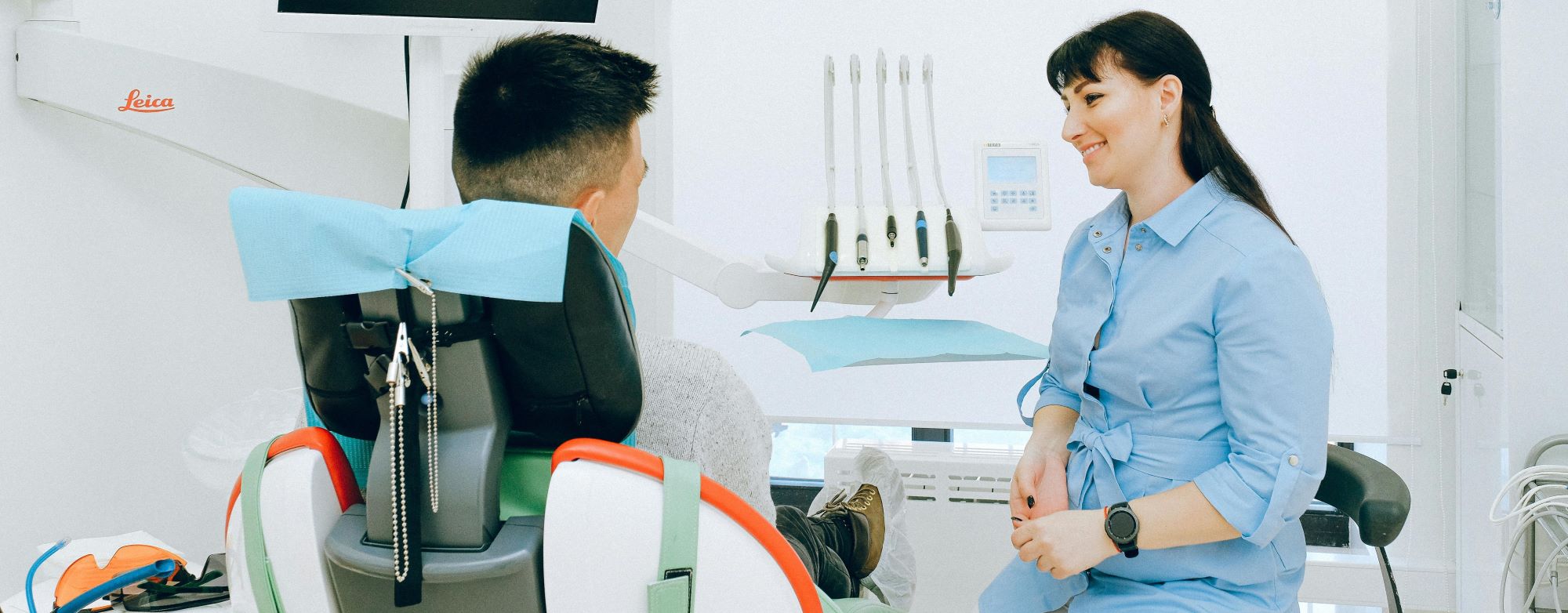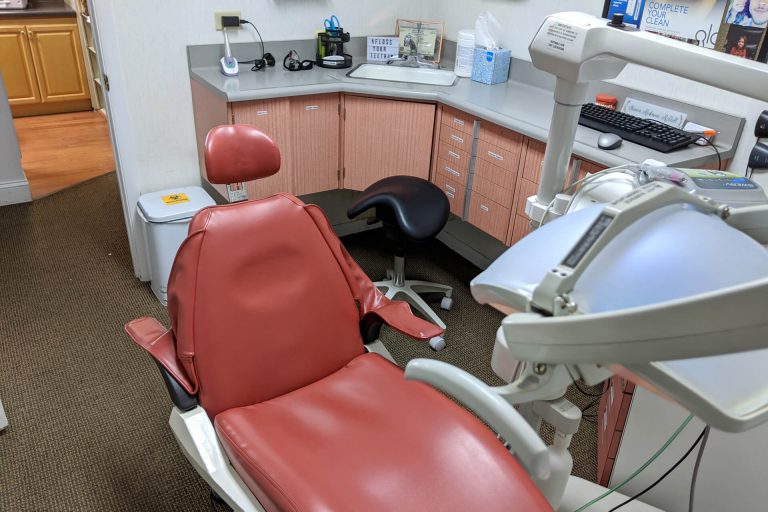
18 Mar What is Dental Anxiety?
Dental anxiety is a common issue that affects many individuals, leading to stress and avoidance of dental care. It can range from mild uneasiness to severe fear that prevents someone from visiting a dentist altogether. While many people feel a bit nervous before a dental visit, dental anxiety goes beyond normal apprehension. It can cause significant distress and impact a person’s willingness to seek necessary dental care. Understanding its causes, symptoms, and management strategies is crucial for those who experience it.
Causes of Dental Anxiety
Dental anxiety can arise from various factors, including traumatic dental experiences, generalized anxiety disorders, or a fear of loss of control during dental procedures. People who have had painful dental treatments in the past may develop a lasting fear, making it difficult for them to feel comfortable in a dental chair. Even if their experience happened many years ago, the memory of pain or discomfort can linger. This kind of trauma can lead to avoidance behaviors, where individuals delay or completely skip dental visits.
Another common cause is a fear of needles or dental instruments. Many procedures require injections for anesthesia, and for those with a fear of needles, this can be a significant barrier to treatment. The sound of drills or the sight of sharp dental tools can also trigger anxiety. Some individuals experience a general fear of pain, even if they have never had a bad dental experience before. The idea of potential discomfort is enough to create high levels of stress.
For some, dental anxiety stems from a feeling of helplessness or loss of control. Sitting in a chair with their mouth open while a dentist works can feel overwhelming. They might fear that they cannot communicate or stop the procedure if they need to. Additionally, trust issues with dental professionals can contribute to this fear. If someone has had a dentist who was rough, dismissive, or unsympathetic, it can make them wary of seeking treatment in the future.
Symptoms of Dental Anxiety
Individuals with dental anxiety may experience a range of symptoms, such as increased heart rate, sweating, trembling, nausea, or shortness of breath. These physical manifestations can significantly impact a person’s ability to undergo necessary dental treatments. Anxiety can cause the body to go into a fight-or-flight response, making it difficult to relax in a dental setting. Some people feel restless or fidgety while waiting for their appointment. They may have trouble sleeping the night before due to worry and anticipation. Others may feel physically ill at the thought of a dental visit, experiencing nausea, dizziness, or even panic attacks. In severe cases, individuals might cry or feel an overwhelming urge to leave the dental office before their appointment even begins.
The mental symptoms of dental anxiety can be just as distressing as the physical ones. Some individuals experience intrusive thoughts about dental procedures, imagining worst-case scenarios or fearing that something will go wrong. They may feel embarrassed about their teeth or worry about being judged by the dentist. This self-consciousness can heighten their anxiety, making it even harder to seek care.
Impact on Oral Health
Avoiding dental visits due to anxiety can lead to worsening dental diseases, necessitating more complex treatments in the future. When individuals skip regular checkups and cleanings, minor issues can develop into serious problems. A small cavity that could have been treated easily may progress into a severe infection requiring a root canal or extraction. Gum disease can also worsen over time, leading to tooth loss and other health complications.
Neglecting oral health can affect overall well-being. Poor dental hygiene has been linked to conditions such as heart disease, diabetes, and respiratory infections. Individuals with untreated dental problems may experience chronic pain, difficulty eating, and decreased self-confidence. The longer dental visits are avoided, the more significant the potential damage becomes. This creates a cycle where anxiety leads to avoidance, and avoidance results in worsening dental health, which in turn increases anxiety.
In some cases, people with dental anxiety resort to self-treatment, using over-the-counter pain relievers or home remedies instead of seeking professional care. While these methods may provide temporary relief, they do not address the underlying dental issues. Delaying treatment can make procedures more complicated and expensive in the long run.
Management Strategies
Effective communication with dental professionals about one’s fears, practicing relaxation techniques, and considering sedation options can help alleviate dental anxiety. Being open with a dentist about anxiety can make a significant difference. Many dental offices have experience working with anxious patients and can provide accommodations, such as explaining each step of a procedure, allowing breaks, or using calming techniques.
Relaxation techniques such as deep breathing and meditation can also be beneficial. Taking slow, deep breaths before and during an appointment can help calm the nervous system. Listening to music or guided relaxation recordings while in the dental chair can provide a distraction and make the experience more comfortable.
Sedation dentistry is an option for those with severe anxiety. Nitrous oxide (laughing gas) can help relax patients while keeping them awake and responsive. Oral sedatives can be taken before an appointment to reduce nervousness. In extreme cases, intravenous (IV) sedation or general anesthesia may be used. Discussing these options with a dentist can help find the best approach for individual needs.
Seeking Professional Help
For severe cases of dental anxiety, consulting with mental health professionals can be beneficial. Therapies such as cognitive-behavioral therapy (CBT) have proven effective in managing phobias, including dental anxiety. CBT helps individuals identify and change negative thought patterns related to dental fear. A therapist can guide patients through exposure therapy, where they gradually become more comfortable with dental environments and procedures. Some people benefit from anti-anxiety medications prescribed by a doctor or psychiatrist. These medications can help reduce stress before a dental visit, making it easier to attend appointments. Support groups and online forums can also provide encouragement and shared experiences from others dealing with dental anxiety.
Conclusion
Seeking help from both dental professionals and mental health experts can create a comprehensive approach to overcoming dental anxiety. With the right support, individuals can develop coping strategies that allow them to receive the dental care they need without overwhelming fear. Understanding dental anxiety is the first step toward overcoming it. By recognizing its causes and symptoms, and by employing appropriate management strategies, individuals can maintain better oral health and overall well-being. Fear of the dentist does not have to control one’s health choices. With patience, education, and the right support, even the most anxious patients can learn to navigate dental visits with greater ease and confidence.
Washington Family Dental is here to help you with dental anxiety. If you need any accommodations, we can help – schedule an appointment with us today!

About Our Team
Our team at Washington Family Dental has over 30 years of experience in the field of dentistry and a reputation for excellent patient care.
Read more about our team here. Ready to book your appointment? Contact us here.
